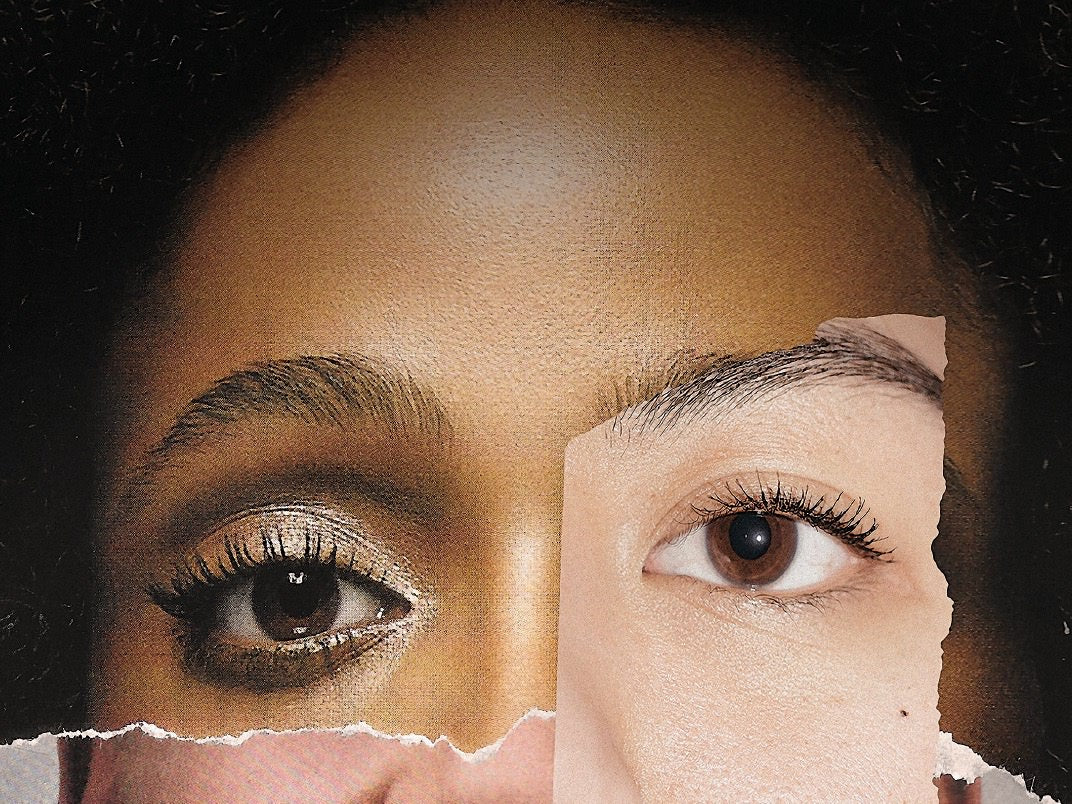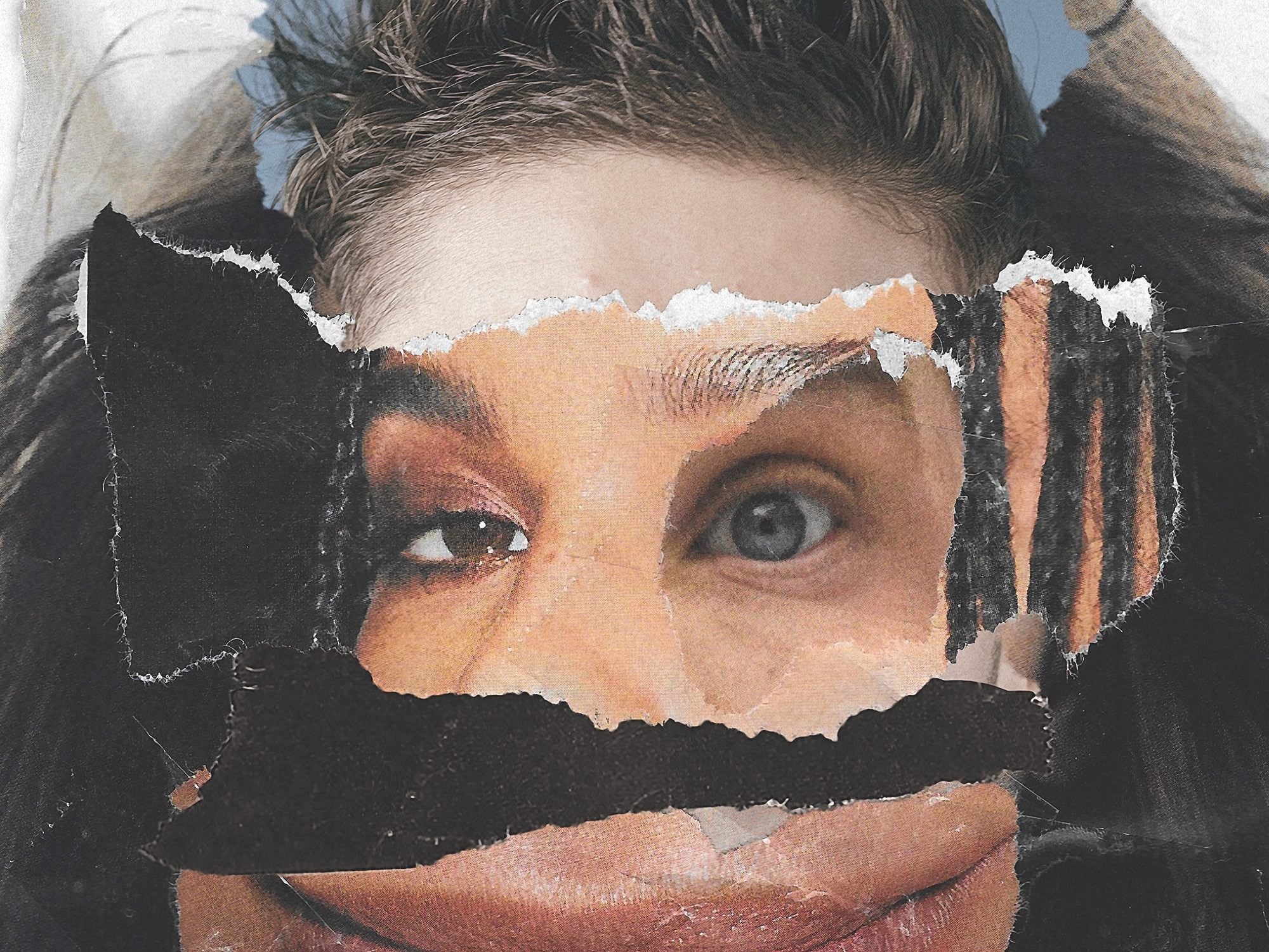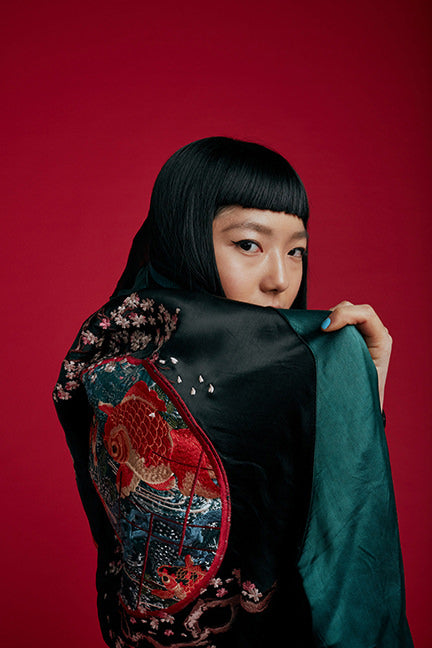The perspectives of racial issues told by individuals from our community.
Introduction by Justin Chan
America is built on race. Our country’s history, filled with periods of light and darkness, is a testament to that fact. From the century-old horrors of slavery to the election of the first African American president, this nation has experienced its fair share of highs and lows. As its racial makeup continues to increasingly diversify, groups frequently ignored in a seemingly black-and-white public sphere have made their voices known. Still, the conversation on race, as a whole, has often been reduced to an overly simplistic discussion of one’s race in the context of whiteness, when, in fact, whiteness is but one of many factors that shape our perceptions of ourselves and each other.
Perhaps no one has sparked a fiercer debate on race more than Donald Trump, a president who has marginalized the disenfranchised with a series of controversial statements, cabinet appointments, and executive actions. In the spirit of nationalism, Trump has started a movement that threatens the very rights of those whom his predecessor Barack Obama fought to protect: African Ameri-cans, Hispanics, Asian Americans, and Native Americans. At a time when the voice of this country’s minorities is more important than ever, UNDO-Ordinary asked people of all backgrounds—white included—to address some of the most pressing racial issues they face.

The Black Voice
Dacoury Natche
Amongst African Americans, there is a lack of communication amongst one another about our issues and talking to each other about where we are at as a community and where we want to go because a lot of conversation that has been going on has been around being the responders to the problem. We’re never the starters to the solution.
I think in the public sphere, with police brutality, Black Lives Matter, and education, there’s always this thing where we find ourselves responding to what “White people” or the dominant race in America have done. I don’t hear a lot of conversation between African Americans about themselves, being able to discuss problems amongst each other, looking towards building solutions within our own communities and starting to recognize that for a lot of reasons, we have to depend on each other and push that forward a lot more, even though we know we are in a situation where we definitely have to work twice as hard to get where we need to go.
Overall, it’s trying to build a sense of self-awareness and self-accomplishment in what we’re doing and what we’re trying to achieve. Just thinking about the Black Lives Matter movement, a lot of people ridicule it because they want to try to put this “All Lives Matter” thing or that “you can’t single out yourself” and everyone in the world is somewhat under scrutiny. Of course, we understand that but in its capacity, blacks have a certain experience that is different from any other race. It’s okay to have a different experience; that’s the point of diversity, to have an experience that’s unique to growing up or a tradition.
Even from my own experience, from being in Asia, Africa, and Europe, and just the different dynamics of culture and how people grow into their communities and how from wealth to culture to sexuality to religion, all these different aspects of progression as a people come from the community.
I’ve gone to the Ivory Coast and seen the infrastructure, a country where the majority are descendants of West Africa. There’s a big French influx of control in the decisions made on the Ivory Coast but overall, it was my first time in a place where everyone was black and yet, you still see the same problems between the rich and the poor but culturally, it’s regional. In the city of Abidjan, there are a lot of businesses and agricultural projects that work to rejuvenate the community and bring more money into the community in the rural side of Gagnoa, which has farmland and people growing their own food. There they also speak their own dialect, Bété, which is different from the main language, French.
My grandmother grew up in Gagnoa and she doesn’t speak French at all. She speaks her dialect but she’s black, just like my skin tone. There is diversity amongst black people and there isn’t just one specifically relevant, dominating culture. That showed me, more than anything, that within our own community we have to find balance with each other to even start to deal with anyone else’s problems because there’s a lot of things that we have to fix within ourselves to not put any blame on others because this is where it starts.
First and foremost, we are a people that have historically been disenfranchised. That is always going to be part of our identity but in a lot of ways, we have to take responsibility for ourselves and try to push forward, even with fewer opportunities.
We live in a time where it’s really about self-preservation and uplifting others. You can’t depend on your President. You can’t depend on your preacher. You can’t depend on your teacher. Not even the police. You have to look at yourself and figure out what you want to do and how to achieve it, depending on the systems to achieve those goals. That’s a huge step in the American dream, this being the land of the free and the land of prosperity. The prosperity only comes to those who build their own. To depend on a system to give you any of that automatically, it’s just not there.
With community, it’s very important to relate to all people, regardless of their race, religion, and economic status because those things are becoming prominent in how we see people and what we think of them as being: assets to the community. It’s important to put yourself in a situation where you are accepting, learning, and you’re willing to listen, hear, and assist when people need help for a voice or helping them be a contributing citizen.
With my work in music, the idea of culture and spreading good music is important to me. In my creative process, I look at what I do as affecting others and how they live their lives. I’m not going to make a song that is just purely for fun. A lot of times, my music represents a sense of thoughts and gives you time to sit and observe the world for what it is. Usually, if I talk to people about music, upcoming artists or people who want to get into the business and really have their voice be heard, it’s more about being comfortable with themselves and not lying to themselves about who they are or what they want to be and in doing so, the music will be better and it will have a stronger effect on people. It’s hard to feel somewhat connected to people and music is an important aspect to that and that’s always been my goal when I create, to relate to people regardless of your identity.
Nai Vasha
One summer, my uncle brought home a native Korean woman and starting living with us. Grandma had already lived with us so I thought this was the norm. Family in and out of the house and everyone was the cook. We grew up in an All-American city just 40 minutes south of Sacramento. My class was made up of Whites, Mexicans and every kind of Asian. Our high school graduation welcoming was in five different Asian dialects. Crushing on a Filipino or Vietnamese boy was normal, I had my fair share of kimchi and noodles for dinner and raced my first car against anything sitting low with a spoiler.
I consider myself a brown woman because that’s what color my actual skin is. My father is mixed with Scandinavian, Middle Eastern and African and my mother’s family mostly descending from Africa with sprinkles of European mixed along the way. This is according to Ancestry and 23andme as I’m itching to get more information on my lineage other than “I don’t know.” That’s the one condition of African American history that goes unspoken. Us “black” people can’t trace our roots. We were stripped of our traditions, dance, food, and families. Not some of us. All of us with footsteps here that date back at least 200 years. That’s just three generations. I can get you names for everyone up until then. Most on my father’s side and less on my mother’s. That’s all I know about the drums we used and the beads we wore. That’s all I know about our native food. Soul food is made from scraps and bless our genius for making something out of nothing but that’s not what my tribe ingested. My tribe was fearless and relentless. Survivors at heart to be able to make it it this far. They ate food that helped them to survive.
The brain can only recognize tradition in which they have experienced. I used to get a Spanish cinnamon bread from my Mexican friend’s house on the weekends and knew to take my shoes off when entering an Asian household. I learned how to camp, sew, fish, and use chopsticks very early in life. I listen to classical and used to sell shoes in Spanish. Those aspects make me an American. They make me well-versed which is completely different from appropriation. Innately, I know how to dance, sing, construct, and tell stories which surely stems from the African side. My parents raised us in a black Baptist Church, so I had a little tradition to keep me whole. I had older people around me reminding me that they’ve been in my shoes and I had kids to teach even when I was eight years old. That’s just the way the tribe works.

I don't think we have gotten more racist or the blanket has even been pulled back further than it was before. In all seriousness, we have lost our tribes. Our people that pour into us and that we pour into. It's all cyclical but we've broken our formation and now we're lost off-road. People have always judged me based on my race. They see a stereotype of black culture and instead, I show them more. More than a difficult name or wild hair. I teach them how to eat vegetables and run long distances. I show them more to my skin than their expectations.
The White Voice
Christy Roberts Berkowitz
My fellow White folks: reverse racism does not exist. You can have a hard life and be a White person, but you do not have a harder life because you are a White person. Racism is a system, a structure, an institution. It’s an institution that benefits White people. Racism, as it is, in its current state, was created and has been maintained by White people. You may at times experience prejudice, but that is not racism. What you experience as a White person, for being a White person, is not an immense, interconnected, and complex structural system predicated on deep and unimaginable violence targeting every crevice of your life for the purpose of maintaining concentrated power.
Because I benefit from the concentrated power of white supremacy, I am racist and anti-racist. I have been programmed by a system that I am benefitting from. Like a cancer that makes you money, is it more important that you be rich or to be alive and healthy? In other words, what kind of alive do you want to be? So if racism is a cancer I am, obviously, anti-cancer. I am never going to be non-violent, non-racist, non-sexist, etc. It is deeply ingrained in the culture I am working to change and the programming I have been embedded with and the life I have access to. I am half Jewish but you wouldn’t know that if I didn’t tell you. My family has faced terrible, violent, and unjust treatment for being Jewish, but they were not born indistinguishable from a gentile. And while the recent wave of Nazis and White Nationalists would pick any of us out of a hat as a target of their violence, I pass. My passability protects me from racism. My passibility is racism.
My existence as a person of privilege is violent. A favorite folk figure of mine, Utah Phillips, tells the story of Amon Hennessey saying this to him, “You were born a White man in mid-twentieth century industrial America. You came into the world armed to the teeth with an arsenal of weapons. The weapons of privilege, racial privilege, sexual privilege, economic privilege. You wanna be a pacifist, it’s not just giving up guns and knives and clubs and fists and angry words, but giving up the weapons of privilege, and going into the world completely disarmed. Try that.” Hennessey likened privilege to the disease of addiction. With the condition that the disease is incurable, it is something you fight every day. So I am anti-racist. I fight white supremacy in my life, my classroom, and my community.
But people of color are dying. Outside of my feelings, which are safe from the threat of racism, people of color are actually dying. That is why my feelings are not important. Deprogramming myself is difficult, but not as difficult as being a person of color. The emotional, physical, and intellectual labor that women of color alone endure is immeasurable, which is why my feelings are not important here. It’s also why it is my job to educate myself. It is not the drowning person’s job to educate me about their drowning. If I am corrected about something I’ve done that is racist, I know it is a gift because the person correcting me is expending the labor on me because they don’t think I’m a bad person– they know that I am still deprogramming. As an empath, I thrive on kindness, but it is not owed to me. After all of the labor that people of color expend, just living their lives in a system set up to demoralize, cage, enslave, and murder them, the last thing they owe me is consideration of my feelings.
When people of color are sharing their feelings, it is about their feelings. If I have done something that is oppressive, I own it, and if the feelings being shared are not addressed at me personally, then the last thing I need to do is project that they are and derail things and make it about my feelings, because again, I have a dominating privilege that centers my feelings as worthy of consideration, but not because they actually are. If I see someone drowning, I’m not going to tell them how drowning makes me feel, I’m going to jump in and help. We live in a system that holds my feelings about water as more valuable than the life of those who are drowning. We need to center the conversation around those in the water without a life vest.

I don’t assume I’m the best person to save the drowning person. In fact, to carry on with the metaphor, the drowning person needs the pool drained more than they need a lifeguard. Rather than constantly trying to rescue vulnerable communities, my wish for White people is that we can all become accomplices in sabotaging and dismantling that which is putting people of color in danger in the first place. Just as it is more valuable, meaningful, and effective to destroy rape culture than it is to tell women what to wear, it is more valuable, meaningful, and effective to destroy white supremacy than it is to give “free hugs” to vulnerable communities. It is a band-aid, it does not tackle the disease.
Segregation and “White flight” is powered by the deep seeded fear that people of color will treat White people as horrifically as White people have treated people of color. Just as homophobia is a man’s deep fear that he will be treated as horrifically as men treat women. The reality is that white supremacy continues to enact horrendous acts of violence upon people of color. My wish for White people is that we can be accomplices in dismantling that system and that we allow people of color to take the lead on how to do that because it is their lives that are at stake.
Finally, I’m aware that “people of color” is a problematic term, so thank you for your patience while I used it as a signifier for one who is not benefitting from white supremacy. Thank you for the kindness and generosity you have shown me while I am growing and co-struggling. “Accomplice” is something I’m not sure I’ve earned, but I will continue to strive to earn the title because love doesn’t always win. It sometimes has to punch a few Nazis.
Daniel Solomito
I am a White male, the easiest job in America, born in New York City to middle-class parents, one Jewish and one Italian. When I was two years old, they decided that Florida would be a nice change after spending their whole lives in New York. Florida is a weird place. I grew up in a homogenous bubble of White wealth but fortunately, I had basketball. The experiences and people that basketball brought to my life at a young age was priceless. I also had parents who were equipped with a relatively mindful perspective on humanity and life, considering they were born in the late 40s, but it was indeed relative. School and society taught me how great Christopher Columbus was, how bad Malcolm X was, how gross feminists were. I had no idea who James Baldwin, Fred Hampton or Stokely Carmichael were. As a White person, it never occurred to me that I should question much of the information that was or wasn’t being given to me.
While I was always taught to be kind to everyone regardless of their race, gender, religion, sexual orientation, I was still very much living my life in White America, a place that doesn’t realize the inherent privilege of being White. It wasn’t until around my 30th birthday that I started being hyperaware of my thoughts, of the information that had been given to me or was floating around me most of my life. I also began to learn about information I was never given, including the depths of the systemic issues that reveal the true darkness of this country’s history. In doing so, I often took time to attempt to remove myself, from people, experiences, and livelihood that was inherent as a White male growing up where and how I did. Doing so is truly sobering, heartbreaking, and frustrating. To learn about how other people are treated who live in the same country, same city, same neighborhood as you, and the disparities that exist are frightening.

Last night around 11 pm I was walking home from a friend’s. I was halfway to my place and a block from my coffee shop when I saw a kid (probably 24-years old) who lives on my block walking towards me. We greeted each other with a dap, said hello and had a quick exchange before I continued on my way. As I got about 10 steps away I hear a commotion behind me, a car screech and as I turn around, I see two guys running towards my neighbor and someone else on the corner. It was dark so I was unable to make out what was happening. The energy was disconcerting so I immediately crossed to the other side of the street diagonally to ensure I was out of any potential harm’s way. At this point, I was almost at the end of the block/corner of the street with my head on a swivel trying to figure out what was going on. Before I knew it, an unmarked police car cuts in front of me near the corner and two undercovers hop out. I stop in my tracks, knowing I’ve done nothing wrong but nonetheless extremely nervous. They jump out of the car run up to me:
Cop: “What was that? What did you just do with that guy?”
Me: “Huh? That’s my neighbor, I said hello to him.”(other cop walks up to me and lightly touches my front hoodie pockets)
Cop: “That’s it? That’s all that happened? We just got a call that someone got robbed. Are you ok?”
Me: “Yea, I’m fine.”
And they went on their way. I was on edge and my mind was racing as I quickly walked home.When I woke up, my first thought was, “I hope the kid from my block is ok. Hopefully, I will see him today to tell him what happened.”At about noon, I’m sitting at my coffee shop when someone knocks on the window, It’s him. I jumped up, and when I walked outside we quickly got into the events from last night. As I got ready to tell him my story and how my heart was racing, he jumped into his experience first. His energy was frustrated. I’m paraphrasing but it went something like this:
“That was crazy last night. You know me, I stay in the house, study, go to school. I was walking to the bodega to get a snack when I saw you. After I said what’s up to you, 2 cops ran up on me, threw me against the wall. They patted me down, super rough, twice, grabbing my balls, pushing me, while about 10 more cops showed up. They were all surrounding me. One cop had his hand on his gun the whole time. They kept trying to bait me, telling me to tell them what I did. I kept telling them I don’t know what they are talking about. But they kept being like, ‘yes you do.’ It’s not the first time this has happened to me, but I’ve seen cops shoot two people before. My left leg was shaking. Another cop was about to pat me down again and I told them that my mom is a NY police officer who’s retiring next year. They then grilled me on that, asking me where and what her name is. I told them and then told them that I’m an US Army veteran. Finally they let me go.”
He then asked me what happened to me. At this point I was almost embarrassed to tell him my experience and the grave disparity between how I was treated versus how he was treated but I think it’s important that he and anyone reading this hears it. So I told him. His knee-jerk reaction was, “now I’m even more mad,” until he took a breath, thought about it, and then said, “it is what it is, no real surprise.”
We talked for another 10 minutes, mostly about the impact police have on neighborhoods. I told him that as physically harmless as my experience was, it was jarring and emotionally draining and how I can’t imagine what he and so many others go through. We talked about how we both can’t stand how whenever we hear about police misconduct, we only hear about if the cop was “put on leave,” “fired,” or “arrested,” and many people feel like that everyone should be ok because “justice was served” but no one talks about the mental and emotional impact this is having on young kids, mainly black and brown, all over the country. We discussed the horrible, inhuman floodlights that are popping up around NY outside of public housing buildings, making it impossible for some residents in those building to even sleep at night. We then gave each other a dap, I told him I’m happy to hear he’s safe, and he went on his way.






